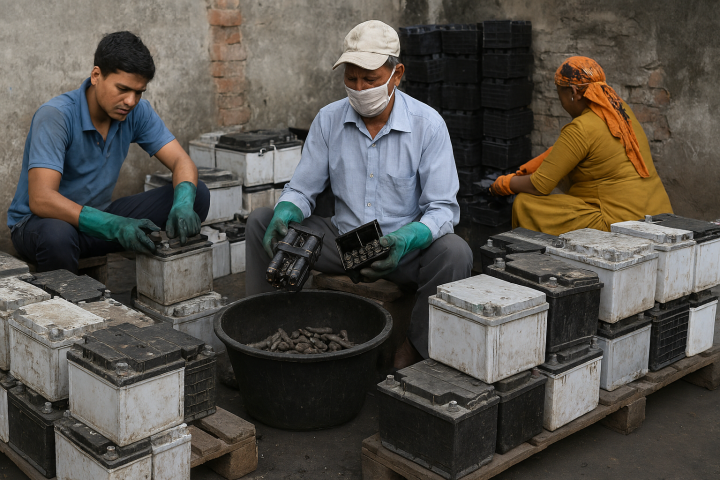Blog

Mumbai: India’s battery recycling ecosystem is undergoing a structural shift, with the government initiating steps to integrate informal operators into the formal value chain. The Ministry of Environment, Forest and Climate Change (MoEF&CC) has stated that the Extended Producer Responsibility (EPR) framework under the Battery Waste Management Rules, 2022 is designed to incentivise formalisation by linking revenue generation to certified recycling activity. This includes the exchange of EPR certificates between producers and registered recyclers — a mechanism that excludes unregistered entities and encourages them to enter the formal system.
To support this transition, a dedicated project has been launched under the Micro & Small Enterprises Cluster Development Programme (MSE-CDP) of the Ministry of Micro, Small and Medium Enterprises. The initiative aims to build capacity and upgrade informal sector operations by forming recycling clusters, thereby enabling small-scale recyclers to access technology, infrastructure and formal market linkages. The programme is expected to reduce fragmentation in the sector and improve traceability of recycled materials, particularly in the context of lithium-ion batteries.
Technology transfer is a key component of the formalisation effort. The Centre for Materials for Electronics Technology (C-MET) has developed a cost-effective lithium-ion battery recycling process, which has been transferred to several recycling firms and start-ups. This move is aligned with the government’s broader circularity goals under Mission LiFE and is intended to improve domestic recovery of critical minerals while reducing dependence on imported raw materials.
The EPR portal developed by the ministry has registered over 3,600 producers and 442 recyclers to date. Producers have procured EPR certificates for 7.29 lakh metric tonnes of key battery metals, against a target of 10.96 lakh metric tonnes. Only certificates issued by registered recyclers are recognised under the rules, reinforcing the need for informal operators to formalise in order to participate in the regulated trade of recycled materials.
The formalisation push is also expected to complement the Production Linked Incentive (PLI) scheme for Advanced Chemistry Cell (ACC) battery storage, which has attracted significant investment in domestic cell manufacturing. With over 100-Gigawatt hour (GWh) of additional capacity announced beyond the PLI beneficiaries, the demand for recycled inputs is likely to rise — making the integration of informal recyclers into certified clusters both a commercial and regulatory imperative.
(Write to us at editorial@bombaychamber.com)








